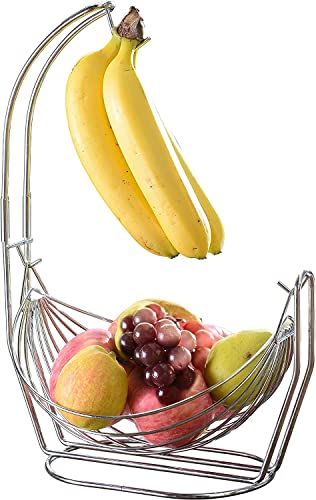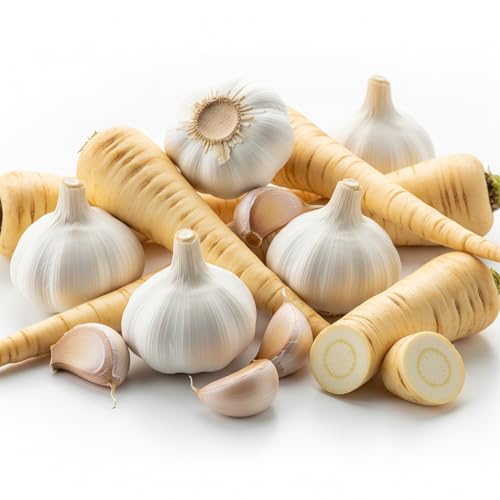



Refrigerating bananas is a common practice for many people, as it helps to extend their shelf life. However, there is a debate about whether refrigerated bananas are bad for your health. Some argue that refrigeration can negatively affect the taste and texture of bananas, while others believe that it can cause them to lose their nutritional value.
One concern is that refrigeration can cause bananas to turn brown more quickly. When bananas are exposed to cold temperatures, the enzymes responsible for ripening are slowed down, which can lead to an uneven ripening process. This can result in bananas that are overripe on the inside but still green on the outside. Additionally, refrigeration can cause the skin of the banana to darken, making it less visually appealing.
Another argument against refrigerating bananas is that it can cause a loss of nutrients. Bananas are a great source of potassium, vitamin C, and vitamin B6. Some studies suggest that refrigeration can cause a decrease in the levels of these nutrients. However, the impact is minimal and should not be a significant concern for most people.
Ultimately, whether or not refrigerated bananas are bad for you depends on personal preference. If you prefer the taste and texture of bananas that have been stored in the refrigerator, then there is no harm in refrigerating them. However, if you prefer your bananas to be ripe and yellow, it is best to store them at room temperature. It’s important to note that bananas, regardless of how they are stored, are still a nutritious fruit that can be enjoyed as part of a balanced diet.
Are Refrigerated Bananas Harmful to Your Health?
Many people wonder whether refrigerating bananas can have a negative impact on their health. While it is common to store fruits and vegetables in the refrigerator to prolong their shelf life, bananas are an exception to this rule.
Refrigerating bananas can actually cause them to deteriorate faster. The cold temperature in the refrigerator interrupts the ripening process and turns the skin brown, even if the inside of the banana is still green. This can affect the taste and texture of the fruit, making it less enjoyable to eat.
In addition to impacting the quality of the banana, refrigeration can also alter its nutritional value. Bananas are a good source of potassium and vitamins, but refrigeration can cause the nutrients to break down more quickly.
If you prefer your bananas to be ripe, it is best to store them at room temperature. Bananas will continue to ripen and become sweeter over time when kept at a moderate temperature. You can even place them in a fruit bowl to speed up the ripening process.
However, if you have ripe bananas that you want to preserve for a longer period, you can consider freezing them. Freezing bananas can help retain their nutritional value and can be used in smoothies or baking recipes. Just make sure to peel them before freezing to avoid a mushy texture.
In conclusion, refrigerating bananas can be harmful to their quality and nutritional value. It is best to store bananas at room temperature for optimal taste and ripening. Freezing can be a suitable alternative if you want to preserve ripe bananas for later use.
The Effects of Refrigeration on Bananas
Refrigeration is a common method used to prolong the shelf life of various types of fruits, including bananas. While refrigeration can help to slow down the ripening process and extend the freshness of bananas, it can also have some effects on their texture and flavor.
Texture Changes
When bananas are refrigerated, the cold temperature can cause the fruit to turn brown and develop a softer texture. This is because the cold air inside the refrigerator causes the enzymes in the banana to break down faster, leading to a quicker ripening process. As a result, refrigerated bananas may become mushy and less firm compared to bananas stored at room temperature.
Flavor Alterations
In addition to texture changes, refrigeration can also affect the flavor of bananas. Cold temperatures can suppress the production of certain compounds responsible for the fruity aroma and sweet taste of ripe bananas. As a result, refrigerated bananas may have a slightly blander flavor compared to bananas stored at room temperature.
However, the impact of refrigeration on texture and flavor may vary depending on the ripeness of the bananas prior to refrigeration and the duration of refrigeration. Bananas that are already ripe may be more prone to texture and flavor changes when refrigerated compared to green or slightly underripe bananas.
Considerations
While refrigerated bananas may not have the same taste and texture as their room temperature counterparts, they are still safe to eat and retain most of their nutritional value. Refrigeration can help to slow down the ripening process and prevent the bananas from spoiling quickly. So, if you prefer your bananas to be slightly firm and less sweet, refrigeration may be a suitable option for you.
However, if you prefer the natural sweetness and firmness of ripe bananas, it is advisable to store them at room temperature. This will allow the bananas to ripen naturally and develop their desired flavor and texture.
Does Refrigeration Affect Banana Nutritional Value?
Many people wonder if refrigerating bananas alters their nutritional value. The truth is that refrigeration can have a minor impact on bananas, but it doesn’t significantly affect their nutritional value.
The Impact of Refrigeration on Banana Ripening
Refrigeration slows down the ripening process of bananas. When bananas are placed in the refrigerator, the cold temperature inhibits the natural enzymes responsible for ripening, which means that refrigerated bananas typically stay firm for a longer period of time.
However, this doesn’t mean that refrigeration has a negative impact on the nutritional value of bananas. It simply slows down the ripening process, preserving their natural nutrients.
Banana Nutritional Value
Whether refrigerated or not, bananas are packed with essential nutrients. They are an excellent source of potassium, vitamin C, vitamin B6, dietary fiber, and antioxidants.
Additionally, refrigeration has no impact on the macronutrient composition of bananas. They still contain carbohydrates, proteins, and fats in the same proportions as non-refrigerated bananas.
While refrigerating bananas may slightly affect their texture and taste, it doesn’t lead to a significant loss of nutritional value. You can still enjoy the health benefits of bananas whether they are refrigerated or not.
How to Properly Store Bananas
Properly storing bananas is essential to maintain their freshness and taste. Here are a few tips to help you store your bananas:
Keep Them at Room Temperature
When bananas are initially purchased or picked, they should be kept at room temperature. This allows the fruit to ripen naturally and develop its sweet flavor.
Avoid Excessive Moisture
Bananas are highly sensitive to moisture, so it’s important to keep them dry. Avoid storing bananas in plastic bags or containers that can trap moisture and cause them to spoil quickly. Instead, leave them in a well-ventilated area.
If you live in a humid climate, consider using a banana hook or hanger to keep them off the countertop. This helps to increase air circulation around the fruit and prevent moisture buildup.
Additionally, be careful not to expose bananas to other fruits that release ethylene gas, such as apples and pears. Ethylene gas accelerates the ripening process, which may cause your bananas to spoil faster.
Refrigerate Ripe Bananas
If your bananas have ripened and you’re not ready to eat them yet, it’s best to refrigerate them. Placing ripe bananas in the refrigerator slows down the ripening process and allows them to stay fresh for longer.
Note that the peel can turn brown in the refrigerator, but the fruit inside remains perfectly fine to eat. If you prefer to eat bananas at room temperature, simply take them out of the refrigerator and let them sit for a while before consuming.
Keep in mind that refrigerating unripe bananas can inhibit the ripening process and result in a less sweet and flavorful fruit. Therefore, it’s recommended to only refrigerate bananas once they have fully ripened.
By following these storage tips, you can keep your bananas fresh and delicious for a longer period of time. Enjoy your bananas in various recipes or as a nutritious snack!
FAQ
Are refrigerated bananas safe to eat?
Yes, refrigerated bananas are safe to eat. While refrigeration may affect the texture and appearance of the bananas, it does not make them unsafe for consumption.
Does refrigerating bananas change their nutritional value?
Refrigerating bananas can cause a slight decrease in their vitamin content, but it is not significant enough to have a major impact on their overall nutritional value. They still retain their potassium and fiber content.







